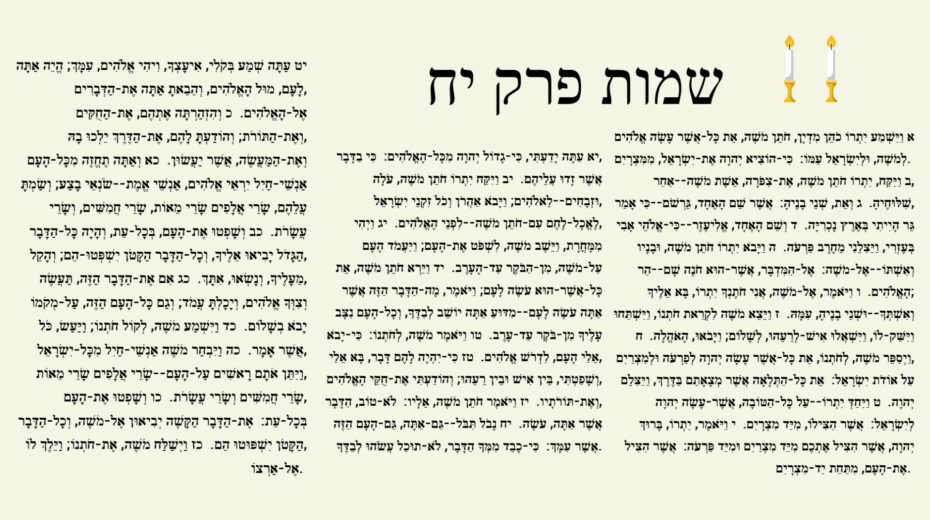In this week’s Torah portion, Yitro, we read about a uniquely transcendent event in world history: The whole people of Israel meet God at Mount Sinai and receive His Law (Exodus 18-20). This event is of the utmost importance to the Jews. For us, this meeting with God is the basis of our faith in Him and His Torah. Moses later summarized this foundation of our faith as follows:
“Has any people heard the voice of God speaking from the midst of the fire, as you have heard it, and survived? Or has a god tried to go to take for himself a nation from within another nation by trials, by signs and wonders and by war and by a mighty hand and by an outstretched arm and by great terrors, as the LORD your God did for you in Egypt before your eyes? To you it was shown that you might know that the LORD, He is God; there is no other besides Him. Out of the heavens He let you hear His voice to discipline you; and on earth He let you see His great fire, and you heard His words from the midst of the fire.
“Because He loved your fathers, therefore He chose their descendants after them. And He personally brought you from Egypt by His great power, 38driving out from before you nations greater and mightier than you, to bring you in and to give you their land for an inheritance, as it is today.
“Know therefore today, and take it to your heart, that the LORD, He is God in heaven above and on the earth below; there is no other. So you shall keep His statutes and His commandments which I am giving you today, that it may go well with you and with your children after you, and that you may live long on the land which the LORD your God is giving you for all time.”
(Deuteronomy 4:33-40)
All of God’s miracles and works on behalf of the people of Israel were performed in order to demonstrate His existence and His will. The whole of the people faced God at Sinai so that the whole of the people people could later testify to their descendants what they saw. In this way no one would be able to invent myths to bring gullible people under the control religious charlatans. If someone from the people of Israel was asked later why they believed in this God and no other, or why they believed in any God at all, they could say that they personally faced Him at Sinai. And this personal experience could be passed down to his children and his grandchildren, and so on. No one can any longer today trace this experience all the way back to Sinai in their own family, but we can say for certain that the ancestors of the Jewish people had a direct encounter with God that is recorded and passed on to us in the Torah.
This may not be comparable to the memory of the Holocaust, which happened much more recently, but the concept is similar: There are people today who think the Holocaust is a myth, but the survivors know exactly what happened to them. Their children and grandchildren grew up listening to personal stories about the Holocaust, and no one can convince them that it never happened. But for future generations it will be more difficult to prove that there was a Holocaust.
In Jewish families, awareness of the Holocaust will remain longer than in people who had nothing to do with it, because we have days and celebrations that remind us of the Shoah again and again. If, in a hundred years, someone without access to archives asks a Jew for proof of the Holocaust, they may not have anything that is 100 percent convincing, other than the fact that his family and people preserve the memory of this dark chapter. It is trust and belief in these traditions that in a way “prove” the historical legitimacy of the events behind them.














